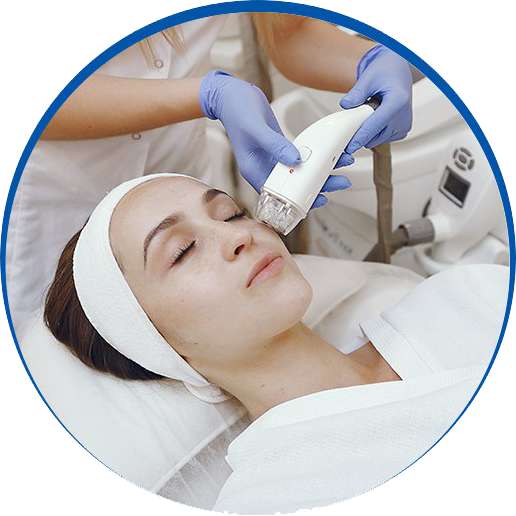Dermatology
Overview
Dermatology is the branch of medicine that focuses on the study, diagnosis, and treatment of conditions related to the skin, hair, nails, and mucous membranes. Dermatologists are medical professionals who specialize in treating a wide range of skin-related issues, from common skin conditions to more complex diseases.

Common Skin Conditions
Acne Acne is a skin condition that occurs when hair follicles become clogged with oil and dead skin cells, leading to the formation of pimples, blackheads, and whiteheads. Dermatologists often recommend topical treatments, oral medications, and lifestyle changes to manage acne.
Psoriasis Psoriasis is an autoimmune skin disorder that results in the rapid buildup of skin cells, leading to thick, red patches covered with silvery scales. Treatment approaches range from topical creams to light therapy and systemic medications.
Rosacea Rosacea causes redness and visible blood vessels on the face, often accompanied by small, red bumps. Triggers include sunlight, stress, and certain foods. Dermatologists can prescribe topical medications and recommend lifestyle adjustments.

KIDNEY TRASPLANTATION
Evaluation and selection of suitable kidney donors and recipients. Pre-transplant assessments and compatibility testing. Living donor and deceased donor transplant procedures. Minimally invasive laparoscopic donor nephrectomy.

TRANSPLANT SURGERY AND CARE
Advanced surgical techniques for kidney transplantation. Robotic-assisted and laparoscopic procedures. Post-transplant monitoring and follow-up care.

RENAL TRANSPLANT EVALUTION AND WORKUP
Comprehensive medical and surgical evaluations for potential transplant candidates. Diagnostic testing, including blood work, imaging, and biopsies. Evaluation of transplant suitability and consideration of alternative treatments.
Skin Cancer
Melanoma
Melanoma is a type of skin cancer that develops from pigment-containing cells called melanocytes. It can be aggressive and potentially fatal if not detected and treated early. Dermatologists play a crucial role in skin cancer screenings and removal of suspicious moles.
Basal Cell Carcinoma (BCC) and Squamous Cell Carcinoma (SCC)
BCC and SCC are the most common forms of skin cancer. They usually appear on areas frequently exposed to the sun, such as the face and neck. Surgical excision is a common treatment for these cancers
Cosmetic Dermatology
Botox and Dermal Fillers
Dermatologists offer cosmetic procedures like Botox injections and dermal fillers to reduce the appearance of wrinkles, fine lines, and restore volume to the face.
Chemical Peels
Chemical peels involve applying a chemical solution to the skin to remove the outer layer, leading to smoother and rejuvenated skin.
Laser Therapy
Lasers are used to treat various skin concerns, including hair removal, tattoo removal, acne scars, and skin discolorations.
Dermatology is a multifaceted field that encompasses medical, surgical, and cosmetic aspects of skin health. Whether you’re dealing with a medical skin condition, concerned about skin cancer, or seeking cosmetic enhancements, consulting a dermatologist can provide tailored solutions and expert guidance.
Hair and Nail Disorders
Alopecia
Alopecia refers to hair loss and can be caused by various factors, including genetics, hormonal changes, and medical conditions. Dermatologists can diagnose the underlying cause and recommend treatments such as topical medications, oral drugs, or hair transplantation.
Nail Fungus (Onychomycosis)
Nail fungus is a common condition that causes thickened, discolored nails. Dermatologists can prescribe antifungal treatments to address the infection.

